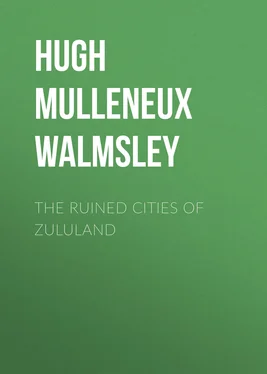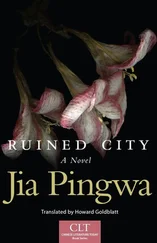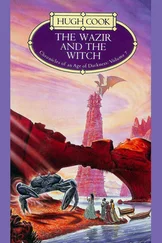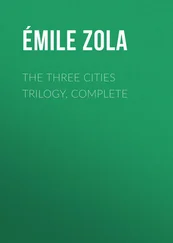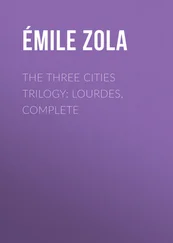Hugh Walmsley - The Ruined Cities of Zululand
Здесь есть возможность читать онлайн «Hugh Walmsley - The Ruined Cities of Zululand» — ознакомительный отрывок электронной книги совершенно бесплатно, а после прочтения отрывка купить полную версию. В некоторых случаях можно слушать аудио, скачать через торрент в формате fb2 и присутствует краткое содержание. Жанр: foreign_prose, История, foreign_edu, foreign_antique, на английском языке. Описание произведения, (предисловие) а так же отзывы посетителей доступны на портале библиотеки ЛибКат.
- Название:The Ruined Cities of Zululand
- Автор:
- Жанр:
- Год:неизвестен
- ISBN:нет данных
- Рейтинг книги:4 / 5. Голосов: 1
-
Избранное:Добавить в избранное
- Отзывы:
-
Ваша оценка:
- 80
- 1
- 2
- 3
- 4
- 5
The Ruined Cities of Zululand: краткое содержание, описание и аннотация
Предлагаем к чтению аннотацию, описание, краткое содержание или предисловие (зависит от того, что написал сам автор книги «The Ruined Cities of Zululand»). Если вы не нашли необходимую информацию о книге — напишите в комментариях, мы постараемся отыскать её.
The Ruined Cities of Zululand — читать онлайн ознакомительный отрывок
Ниже представлен текст книги, разбитый по страницам. Система сохранения места последней прочитанной страницы, позволяет с удобством читать онлайн бесплатно книгу «The Ruined Cities of Zululand», без необходимости каждый раз заново искать на чём Вы остановились. Поставьте закладку, и сможете в любой момент перейти на страницу, на которой закончили чтение.
Интервал:
Закладка:
Looking about him, roused by the noise, he was just in time to save the baboon’s life. Luji had been engaged for some time pelting it with sticks and stones, but the agile brute was too much for him. Masheesh stood in the act of poising his assegai, when Hughes stopped him.
“The monkey saved my life, Wyzinski,” said he; “and besides, it would be hard to kill the creature which evidently trusts in us.”
“Trusts in you, it would appear,” replied the other; for at this moment, as if recognising Hughes, it came towards him, showing the wounds on its back, and holding out its bloody hands.
“Fetch me the arnica and some water, Luji; we will soon put those scratches to rights, though they are caused by the lion’s claws.”
“The lion’s claws!” asked the missionary; “why, what had the monkey and lion in common?”
“I’ll tell you when I have had a good wash, and some breakfast,” replied the other.
The baboon was soon caught, and his back freely bathed with the arnica water, when the intense smarting, and the grotesque grimaces and loud chattering consequent on it, caused shouts of laughter.
A good wash in the river, a hearty meal of eland meat, with a dessert of the mobala fruit, strongly resembling in flavour the English strawberry, and then the hunter told his tale. The news as to the wounded elephant soon spread through the little camp, and every one, from the missionary downwards, was eager to follow up the spoor.
They soon found it, leading from the trampled river bank up the slope, and entering the wood, they at once came upon the animal itself, lying quite dead on its side; a young tree having been borne down by the heavy weight, had broken short off and lay under it. Standing near was the young elephant, waiting for its dead mother to wake, and on the approach of the party it struck the carcass several times with its trunk, and failing to rouse it, trotted away in a lumbering fashion, its trunk raised in the air, then turned to look. Like the baboon, it showed no fear, barely refusing to be caught. The men were set to work to cut out the tusks, but being unpractised hands, it took them all day to do it. The best parts of the meat were brought into camp, and then the jackals and hyenas assembled in large numbers, holding high carnival, while the tusks, together with the panther and lion skins, remained as a memento of the night. For two days the party halted on this spot, and each night the one or other watched the pool, with varying success, but not seeing any more elephants, and only hearing the lions in the distance.
Still travelling northwards, they pushed on through a fertile country, which gradually became more and more of forest. Elephants were often seen, but it was useless to encumber their march by carrying the tusks, and Wyzinski’s sole purpose seemed to be the finding of the supposed ruins. Giraffe, buffalo, antelope of all kinds, quaggas, and zebra, were plentiful, while an occasional lion was seen. The hippopotami and rhinoceros were often met with on the river banks.
The natives, who appeared from time to time, yet bore the stamp of the Zulu race, but were not friendly, though guilty of no overt act of enmity. They were men of good stature, well formed, and clean limbed; their woolly hair often surmounted with plumes of ostrich feathers. They were well armed. Vast forests of what appeared to be magnificent cedars, impeded their way. The natives, both men and women, were nearly naked, the latter particularly showing great fear of the white men, so much so as to leave their huts on the approach of the party, carrying with them their children. In some of the huts slabs of stone were seen, evidently having been fashioned by hand, and used in the construction of some building, but no information could be gathered. Gold was known, and its value appreciated among these tribes. The men, fully armed, would venture into the camp, bringing with them quills filled with gold, sealed at both ends, and offering them for sale, evidently fancying the white men traders, and asking for calico and beads in return. The young elephant actually followed the party for three days, and on the fourth was found dead close to camp, evidently from its inability to supply itself with the food its mother alone could give. The hippopotami were numerous on the rivers, and unlike those more to the south, they showed little fear of man. Shaped like a huge pig, the head massive, and the eyes placed very high in the forehead, these ponderous animals, whose carcass of a brownish-red looks like a great barrel, have thick hanging lips, and such short stumpy legs, that the belly nearly touches the ground. All day long they might be seen feeding on the sweet grasses; and on the approach of strangers would slide off the bank into the water, gradually subsiding until the whole disappeared, and then rising again slowly for air. On the Quissanga river they were very numerous. Heavy and lumbering looking, none would give these animals credit for the intelligence they really possess, and yet they will only feed on the sweetest grasses, and are nearly as cautious and cunning as the elephant, in avoiding the traps and pitfalls of the natives. They display a strong and peculiar affection for their young, and though quiet and peaceable enough, will fight for them.
“See, Wyzinski,” said Hughes one evening, as with their rifles in their hands the two were walking up the banks of the Quissanga river, “look at that unwieldy young hippopotamus feeding alone. I’ll give it a start.”
“Take care what you are doing,” replied the missionary, who was busy watching some birds building near the stream.
“Never fear for me,” exclaimed the soldier, bent on the fun of cutting off the lumbering young animal from the water.
Besting his rifle against a tree, Hughes ran to intercept it, which he easily did, for the ugly little brute did not see him until he was quite close to it, and then it seemed to lose its head, waddling away towards the bush, its pursuer shouting and laughing behind. A loud call from the missionary caused Hughes to turn, and he at once saw that the situation of matters was reversed. Right up the bank came a very large female hippopotamus, in pursuit of him. Unarmed, there was nothing for it but to use his legs, and this he did; but the hippopotamus diverged, and so the pursuer pursued must cross the line of its advance, for the bush was too thick to be entered.
It was a question of speed, as the great animal came on, its enormous mouth wide open and menacing. Slow as its motion appeared, the animal would have cut off the man, but just as they neared one another, a ball from Wyzinski’s rifle struck it in the open mouth. The hippopotamus stopped as the breathless soldier dashed by, and seized his rifle, when a ball hit it right in the eye, and it fell dead.
This animal measured eleven feet six inches in length, add in girth ten feet five inches. No one of the party ever after this attempted any trifling with the hippopotami.
The baboon had grown very tame, and had taken a great fancy to Luji. The two lived together, and seemed inseparable, and whenever it became tired on the march, it would take its place on his shoulders. It was always in mischief. Seated the same night, after the adventure with the hippopotamus, round the camp fire, near the banks of the Quissanga river, Wyzinski was laughing at the morning’s adventure.
“I hadn’t a notion you could run so fast, Hughes,” he continued.
“Hadn’t you,” replied the soldier, not half liking the missionary’s quiet way of chaffing.
“No, indeed I hadn’t,” answered the other. “I see now why they gave you the Light Company in the gallant 150th.”
Luji’s wide mouth was opened to the fullest possible extent.
“Master no like Quissango hippopotamus? Luji no like Zoutpansburgh lion!”
Читать дальшеИнтервал:
Закладка:
Похожие книги на «The Ruined Cities of Zululand»
Представляем Вашему вниманию похожие книги на «The Ruined Cities of Zululand» списком для выбора. Мы отобрали схожую по названию и смыслу литературу в надежде предоставить читателям больше вариантов отыскать новые, интересные, ещё непрочитанные произведения.
Обсуждение, отзывы о книге «The Ruined Cities of Zululand» и просто собственные мнения читателей. Оставьте ваши комментарии, напишите, что Вы думаете о произведении, его смысле или главных героях. Укажите что конкретно понравилось, а что нет, и почему Вы так считаете.
